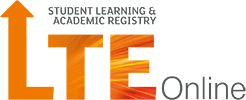There are a series of guides to help support staff in their learning and teaching role.
Retention and the Curriculum
Providing a range of support services for students and an effective induction to the University and programme are now accepted practices across the University. They make a real difference to students’ chances of success. There is also a more explicit role for academic staff and programme teams in supporting student retention and success by making...
Work-based Learning
What makes a good work-based learning student experience? 1. Good partnership working Close working with the partner (whether this is an employer; a representative body or the student/s themselves) ensures that the curriculum maintains its relevance. Good partnership working also facilitates the development of appropriate support structures for workplace mentors/tutors. Many programmes which utilise employers...
Guidelines for Inclusive Learning Resources
A set of Guidelines which are intended to provide basic inclusive principles to consider when staff develop learning materials for students. The principles are based upon good practice from sources including the British Dyslexia Association (BDA), Royal National Institute of Blind People (RNIB) and Jisc. The aim of the recommendations in the Guidelines are to...
Conducting Pedagogic Research: A Short Guide
Pedagogic research, also known as the scholarship of learning and teaching (SoTL), is the systematic inquiry into student learning which advances the practice of teaching in higher education by making both the process of inquiry and its findings public (Hutchings and Shulman, 1999)...
Inclusivity for Teaching and Learning Support
Integrating principles of inclusivity into Future Facing Learning developments across Teesside University aligns with the University's strategic aim to provide a 'stimulating learning environment and innovative curricula that provides an outstanding student experience' The aim of this section of LTE is to develop a shared understanding of inclusive design to support all learners in their...
Designing, Delivering and Assessing Practical and Laboratory-based Sessions
What are Practical and laboratory-based sessions? Practical and laboratory-based sessions normally include a strong demonstration element, for example important techniques or how to use specific equipment, and they encourage students to have a go themselves. It is often the case that practical or laboratory-based sessions begin with teaching basic skills, before students start applying them to...
Formative Work and Feedback
As teachers we feedback to students all the time in a range of different ways. It is interesting, however, that we tend to think of feedback solely as the written comments we make on assessed work. While this is to some extent inevitable given the time consuming nature of producing this kind of feedback, it...
Learning Outcomes
Why Use Learning Outcomes? Being clearer about what we want from our students helps us to make the important decisions such as: what we want them to know (knowledge and programme content) how we want them to learn it (teaching and learning strategies) how well they have learned it (assessment) how effective the programme has...
